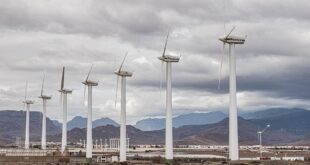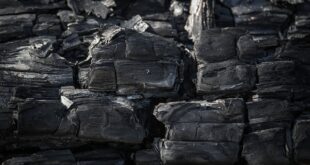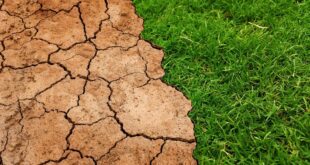The Perils of Greenhouse Gases: A Window Into Our Ticking Time Bomb
Introduction
Our planet is warming up rapidly, and the culprits are the greenhouse gases produced by human activities, such as burning fossil fuels, deforestation, and agriculture. These gases form a layer around the earth, trapping the heat and disrupting the natural balance of our climate system. The consequences are dire and far-reaching, from melting glaciers and rising sea levels to extreme weather events and out of control wildfires. This article will take a deep dive into the dangerous world of greenhouse gases to help you understand the severity of the situation and the urgency of taking action.
What are Greenhouse Gases?
Greenhouse gases are a group of gases that trap heat in the earth’s atmosphere, acting like a blanket that keeps the planet warm. The most common greenhouse gases include:
- Carbon Dioxide (CO2)
- Methane (CH4)
- Nitrous oxide (N2O)
- Fluorinated gases, such as hydrofluorocarbons (HFCs), perfluorocarbons (PFCs), and sulfur hexafluoride (SF6)
These gases are released into the atmosphere through a wide range of human activities, such as burning fossil fuels for energy, deforestation, and intensive farming practices. Once these gases are in the atmosphere, they trap heat, leading to the warming of the planet. This phenomenon is what we call the greenhouse effect.
The Harmful Effects of Greenhouse Gases
The dangerous ramifications of greenhouse gases are manifold, leading to an irreversible chain of environmental catastrophes which have consequences for nature, wildlife and our very existence. Some of the specific effects produced by greenhouse gas emissions are the following:
- Higher global temperatures
- More heatwaves and record-breaking temperatures
- Longer, more severe droughts
- Stronger and more frequent hurricanes, typhoons and cyclones
- Melting glaciers and polar ice caps
- Rising sea levels
- Worsening wildfires and erratic rainfall
- Increased ocean acidity and water pollution
- Extinction of both flora and fauna species
The terrifying and varied adverse effects of greenhouse gases aren’t only limited to the ones listed in the above. Where perpetuation of the situation grows, so does the magnitude of the ecological, financial and humanitarian problems.
The Impact of Human Activities
Human activities are the primary cause of greenhouse gas emissions, with the burning of fossil fuels being the primary offender. The emissions from combustion of oil, gas and coal make up for almost 80% of the total greenhouse gases emitted in the world. Carbon emissions come from automobiles, airplanes, and factory stacks with invisible and very brazen carbon footprints. The irresponsibility of human activities should take full responsibility for the menace that looms ahead.
Tackling the Challenge of Greenhouse Gases
While the volume of greenhouse gases released into the atmosphere is alarming regarding the symptoms serving as an eternal reminder less attention is devoted to viable solutions. To mitigate this hazardous phenomenon, every aspect of our daily activities should be examined, from launching models of utilizing renewable energy sources, consuming locally grown foods to commuting to the office by pedestrian means. Resorting to alternative energy avenues aside from coal, oil and wood does not only relieve the cause of greenhouse gases, but it reduces other climate change problems such as the destruction of forest covers for fuel wood. Reducing the need for motor vehicles in urban locales by boosting environmentally friendly and encouraging cycling and walking alternatives facilitate clean breathing air. Today, renewable technologies are becoming mainstream, cheaper methods to modify greenhouse gas creation with attention to the main effect while increasing power production too. We must wholly embrace the transition to maintain livable conditions on the planet.
Conclusion
Arguably, humanity has one time to stop in endorsing an immediate and forceful response to climate change. Greenhouse gases’ creation needs to modify to zero, with careful reforestation of forest covers to decline absorption, amongst other stated solutions. This self-induced situation requires unwavering collective action from everybody on this light of the little known more significant common ground shared by citizens in ensuring impact where threatening existence arises. If we fail, the consequences are dire, and ethically unjust. Thus, the ball lies in our court, choose wiseness over convenience as individuals the threat to the planet’s welfare gets urgent every day to be concluded as a precarious affair seeming inevitable if quick but well-communicated action isn’t staged!
 Mind Uncharted Explore. Discover. Learn.
Mind Uncharted Explore. Discover. Learn.




